Lithuanian Photographer Outraged After IKEA Bulgaria Rips Off His “Quarantine Portraits” Series
While this has certainly been an issue for as long as many of us can remember, plagiarism (in any of its forms or calibers) has been on the rise lately.
If you’ve been following the news lately, you will have heard how China has effectively stolen and flipped a video of the Swiss Alps in hopes of passing it off as their own mountains, or how this one artist applied for an internship at Converse, suggesting some of her own design ideas, only to see them plagiarized in a future shoe design that went public.
Well, there’s another plagiarism story arising, one connected to photographer Adas Vasiliauskas and a project of his that has already been featured on Bored Panda—quarantine portraits using a drone.
More Info: Facebook | BalkonArtist.com
Remember the “Quarantine Portraits” project? Well, with things as huge as this, there’s bound to be copycats, right?
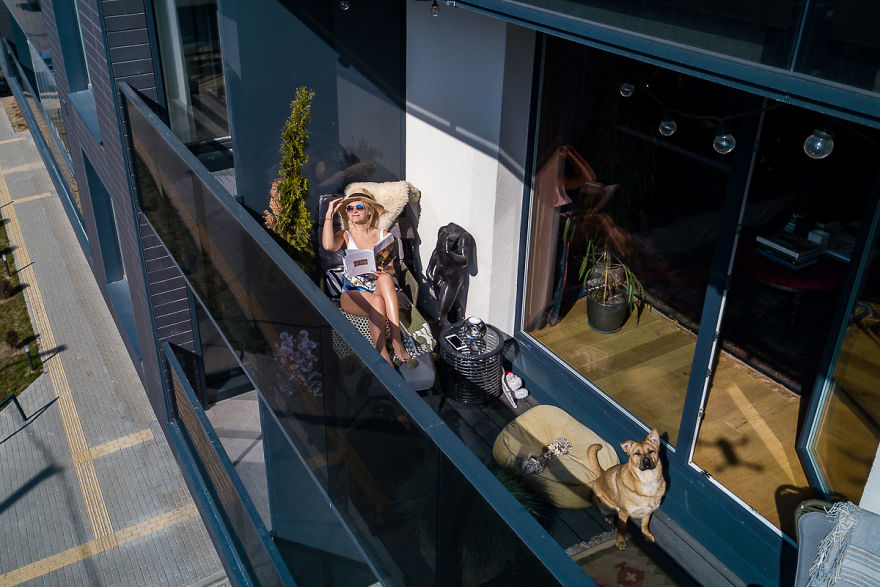
Image credit: Adas Vasiliauskas
So, remember when Bored Panda featured drone footage—portraits, if you may—of people chilling on their balconies in the coolest ways during the start of quarantine? The man behind it, Adas Vasiliauskas, came into huge fame because of this project, eventually becoming the father of the idea, so to say.
Last year, Adas was tagged in this one photographer’s photo post comments by someone from Bulgaria, asking if they’d have the courtesy to tag Adas as part of the pictures. Several clicks later, Adas runs into a familiar sight—drone footage of people on balconies, having the time of their lives.
Well, yeah, there is, and this time it’s IKEA Bulgaria who more or less copied the Quarantine Portraits project for their ad campaign
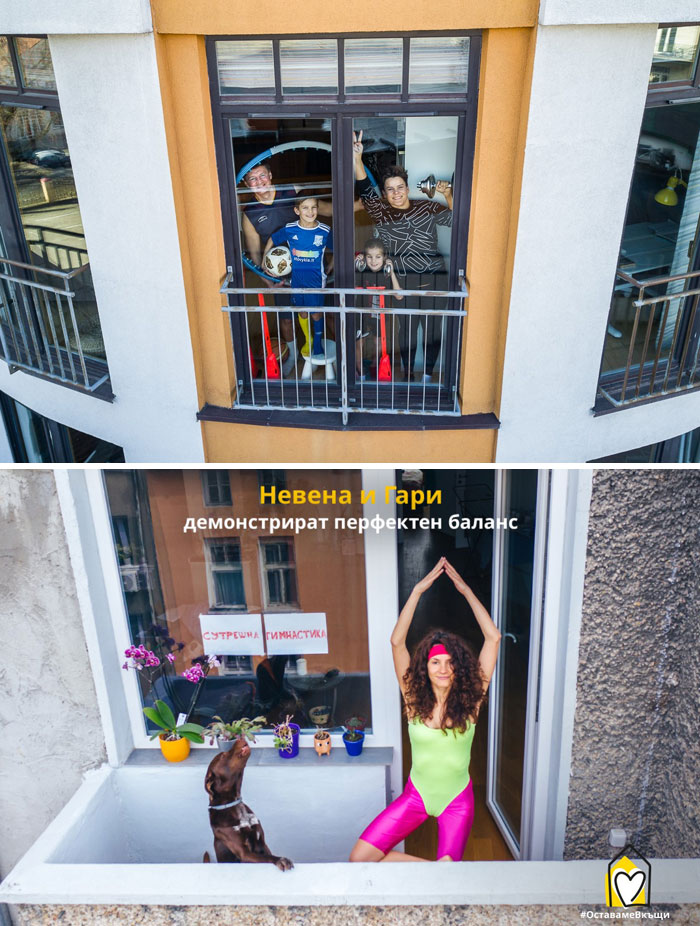
Image credits: Adas Vasiliauskas / IKEA Bulgaria
The photos, granted, were not his, but had the same style, choreography, and overall air to them. After further investigation, he found out from this photographer, Aleksandar Kostov, that he got a commercial request from a Bulgarian ad agency called the Smarts, which is working on an ad campaign for IKEA Bulgaria, to do this. He was given Adas’ photo as a reference. That’s all.
“I didn’t talk much with the Bulgarian photographer, just verified with him whether he truly got my picture from the ad agency as a reference on how he should go about with this project,” elaborated Adas in an interview with Bored Panda.
“He didn’t do anything wrong, he’s a commercial photographer, an ad agency approached him with a task, and he did it. I’m a commercial photographer myself, I do loads of ads, so I know how it’s all done and I don’t blame the guy at all.”
Adas, the man behind the original project, was tagged under some photos of another photographer that were clearly inspired by his quarantine project
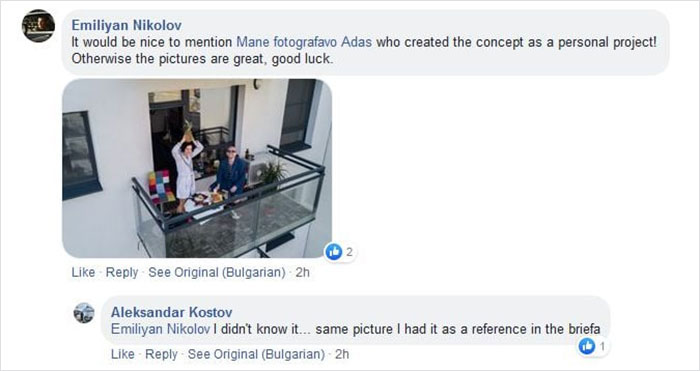
Image credits: Adas Vasiliauskas
After some questions, he found out that an ad agency hired this photographer to do the same thing Adas did
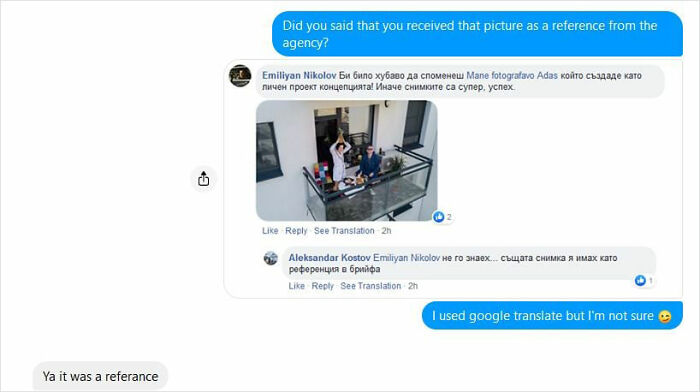
Image credits: Adas Vasiliauskas
And while these aren’t identical, they certainly mimic the style, choreography and other aspects of the original photos
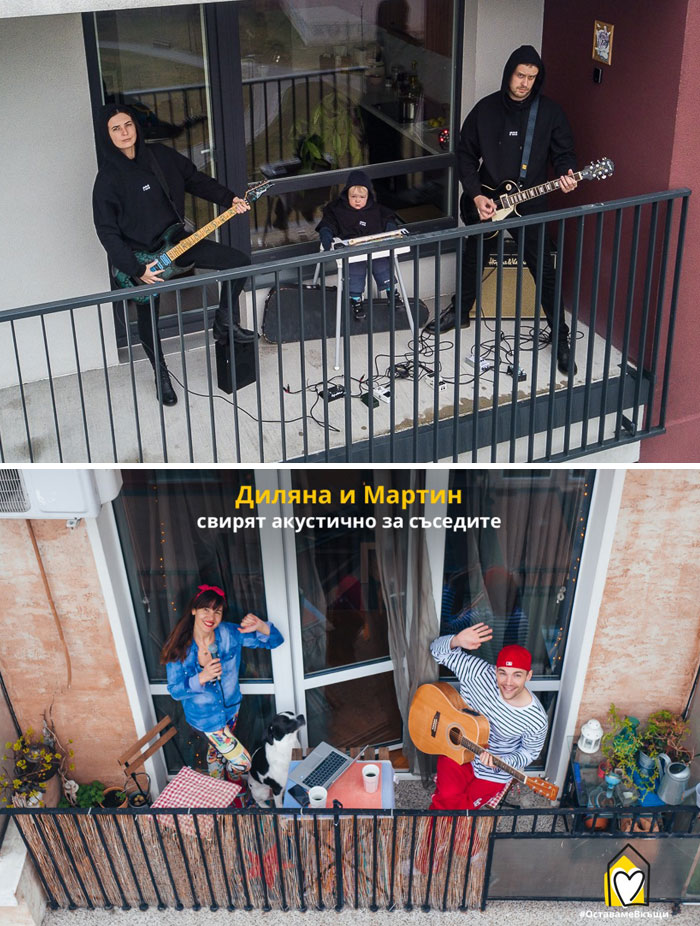
Image credits: Adas Vasiliauskas / IKEA Bulgaria
Sure enough, Kostov sent Adas a link to IKEA’s page with the pictures of Bulgarian balconies in all of their glory, with some of them bearing great similarities to what Adas did a year back. Well, what followed was one 4-page legal complaint letter to the Bulgarian IKEA regarding the issue.
“I forgot the legal wording—it was something among the lines of infringing upon the directing performance of it. But even though the idea isn’t patented, the resemblance in time is too obvious for it to be written off as just a coincidence and that nobody could have known,” explained Adas in his Facebook post (in Lithuanian).
In our interview, Adas explained that the legal complaint included demands for financial remuneration for the use of the idea. Since he was already talking to several other global agencies regarding the use of this idea, he wasn’t really interested in anything other than that. “I already had enough glory at that point,” joked Adas.
Adas got in touch with IKEA Bulgaria, and after a long wait, they responded with a legal statement, effectively denying everything and saying no to his demands
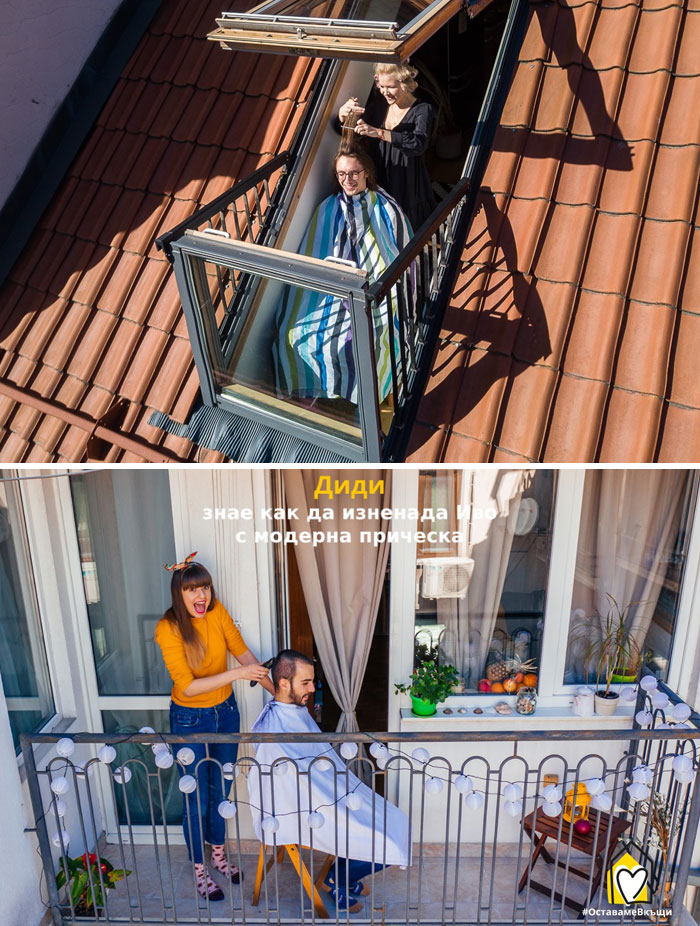
Image credits: Adas Vasiliauskas / IKEA Bulgaria
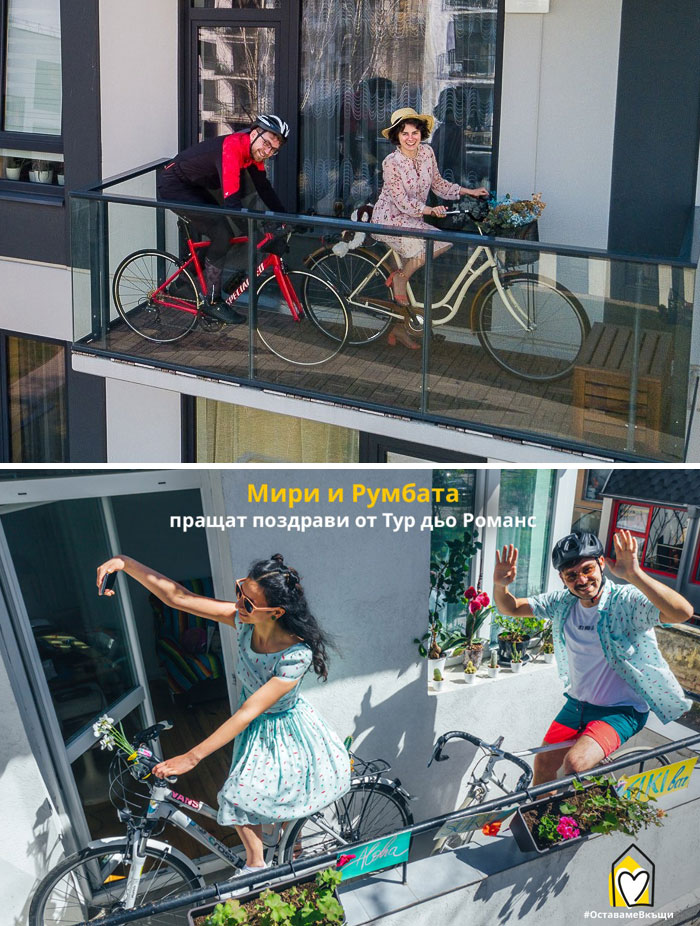
Image credits: Adas Vasiliauskas / IKEA Bulgaria
IKEA Bulgaria remained silent. Until several weeks later, when Adas’ team got in touch with the IKEA mothership, after which the Bulgarian branch issued a statement.
To quote Adas’ post, it was “an approx. 5 to 6-page letter of ‘I didn’t do it’: they denied everything, sent us off because the idea isn’t ours, used some legal-eagle speech to disregard our arguments, pointed out everyone has a drone, and even more so—a balcony—so wham bam thank you ma’am, good-bye and please stop pestering us.”
From a legal standpoint, Adas decided to not pursue any further actions—after all, it’s another country with its own laws, the situation overall is rather vague, and getting evidence for it would be a problem, so he just paid for the legal complaint procedures and considered it a learning experience that he shared with the internet.
Now, pursuing legal action would be very tricky without patents or clear evidence, but it would have surely been nice if they’d asked
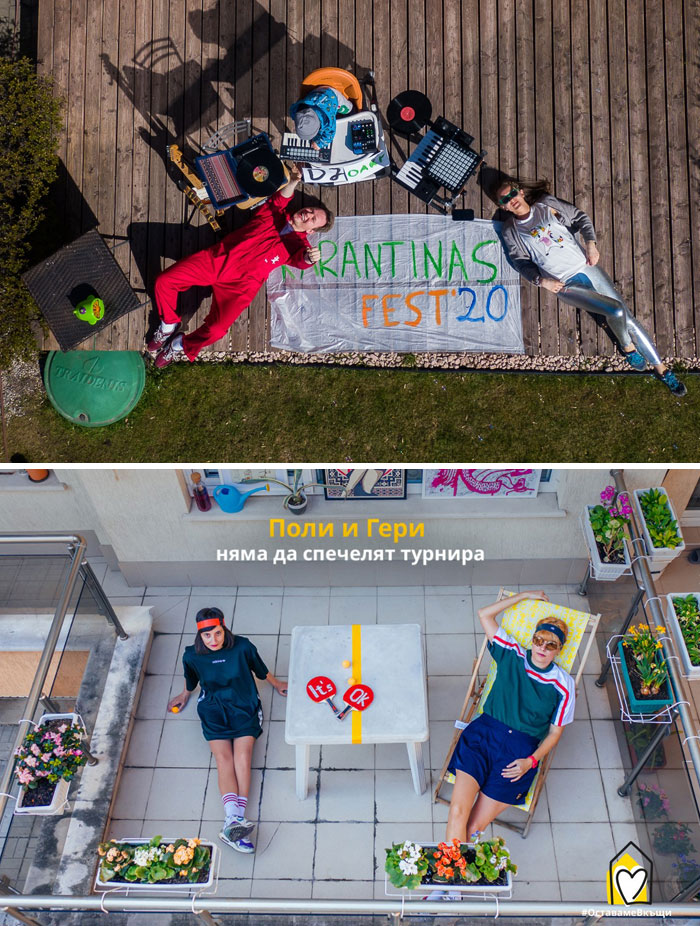
Image credits: Adas Vasiliauskas / IKEA Bulgaria
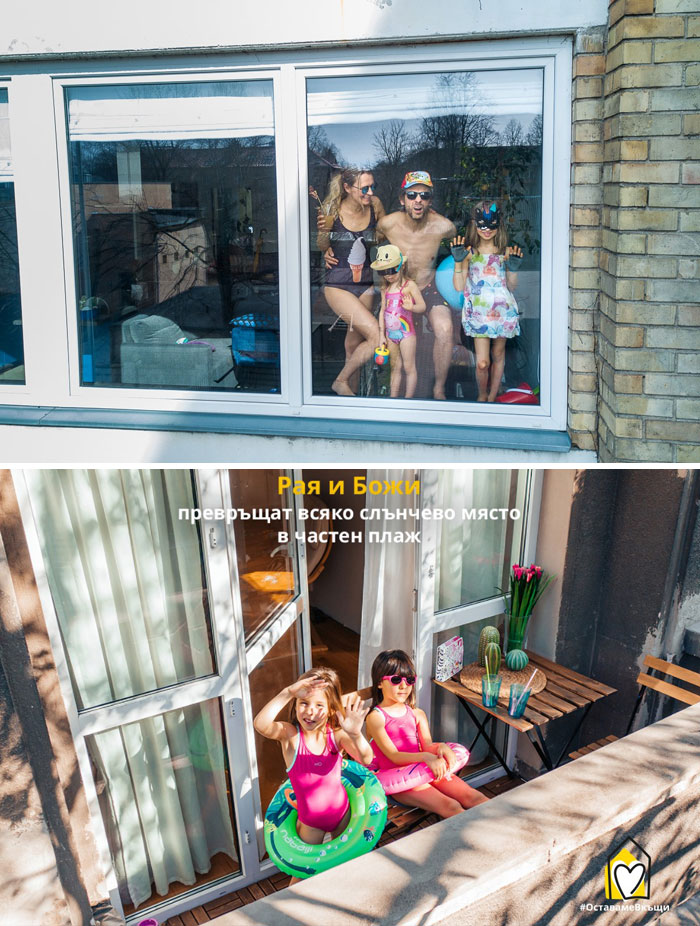
Image credits: Adas Vasiliauskas / IKEA Bulgaria
While one could argue from a legal standpoint that people were simply doing as they were told and that this can definitely be interpreted as an inspiration, not plagiarism, it does point out just how far certain lines can be pushed if brands (and ad agencies behind them) are allowed to do so.
“Plagiarism is a serious problem. In my experience, it’s more often the case of my photos and not ideas that are being used without permission,” elaborated Adas. “Some even get shocked at how photographers dare to make such a big deal about it. Perhaps it’s the same with ideas.”
“On the other hand, if they got in touch with me, asked for permissions and whatnot, despite the client not having a budget for it, I think I would have probably let them use the idea. At that moment, I would get upwards of 10 editorial requests per day. Sure, these were editorials and news sites, but a different set of rules applies for commercial use.
Regardless, this raises an issue of how much brands, big or small, will push the line without getting in trouble
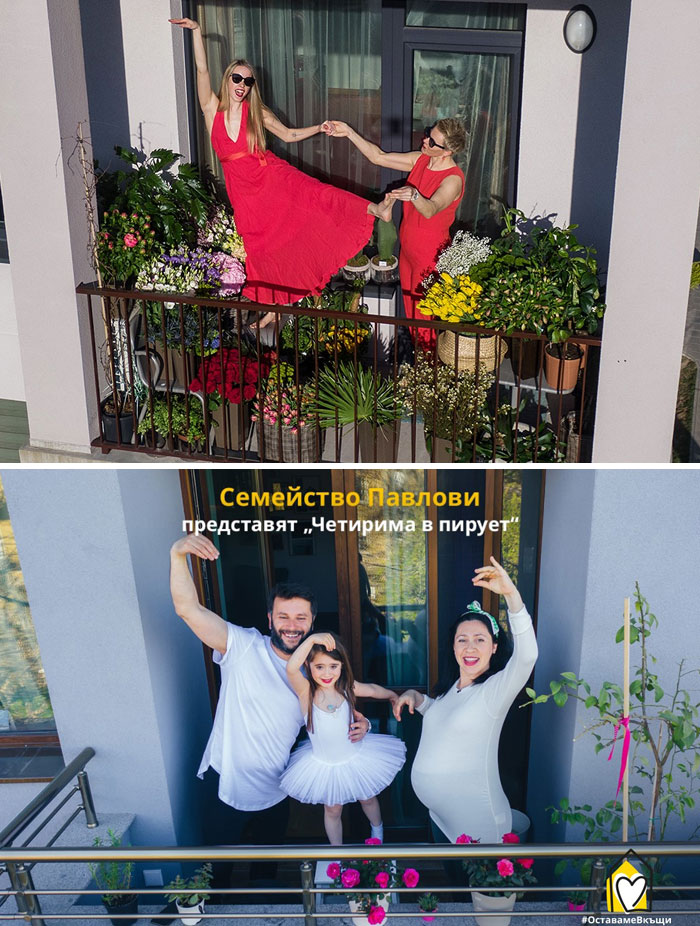
Image credits: Adas Vasiliauskas / IKEA Bulgaria
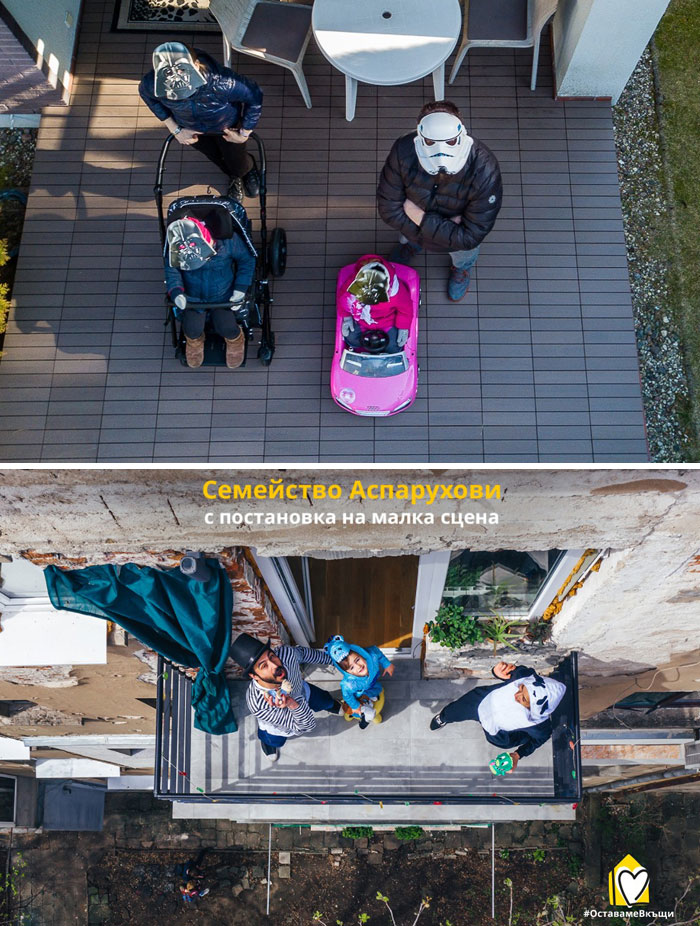
Image credits: Adas Vasiliauskas / IKEA Bulgaria
He admitted that the situation is slippery—there’s no legal security for the idea—but it doesn’t take a lot to understand that this was Adas’ idea. “It was during the pandemic, the project was spreading around the globe like wildfire, and the resemblance is just too uncanny to claim anything other than my photos being an obvious reference.”
This is besides the fact that Adas has won awards for this project, including the Drone Photo Award, for instance, and also took part in the Yixian Photofestival where he showcased his quarantine portraits, and was even covered by a slew of other news media sites, including Insider, the New York Post, and PetaPixel, among many others.
Adas wasn’t the only one unhappy with this, as some people online bashed the ad agency for being so inconsiderate, all the while also making jokes about how fast IKEA was to respond to someone who would start a furniture business “inspired” by IKEA.
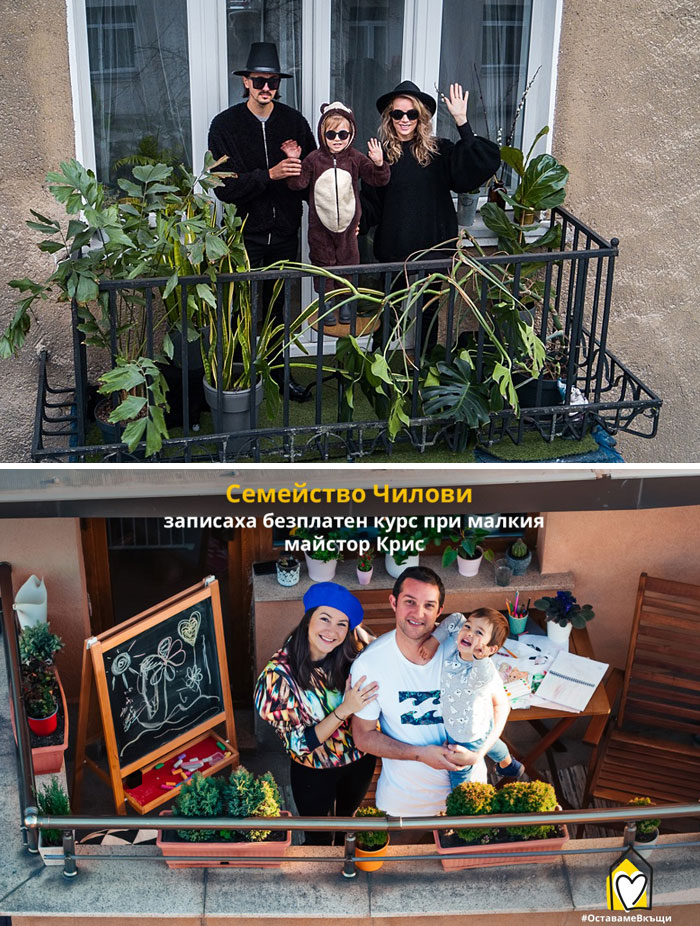
Image credits: Adas Vasiliauskas / IKEA Bulgaria
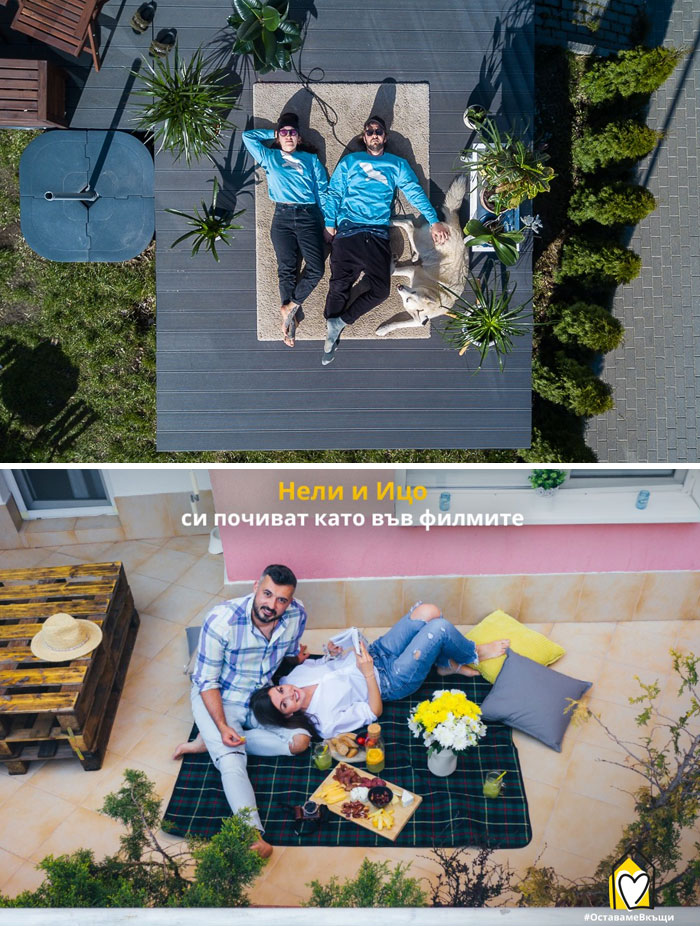
Image credits: Adas Vasiliauskas / IKEA Bulgaria
There were, however, many who emphasized how not having a patent and “it all being on the internet” often leads to situations like this and nobody can really be angry about it.
What are your thoughts on the matter? If you’re an artist and have had your work plagiarized in the past, share your stories and advice in the comment section below!
And if you want more from Adas, you can check out his various social media here, here, and here.
The post Lithuanian Photographer Outraged After IKEA Bulgaria Rips Off His "Quarantine Portraits" Series first appeared on Bored Panda.

No comments